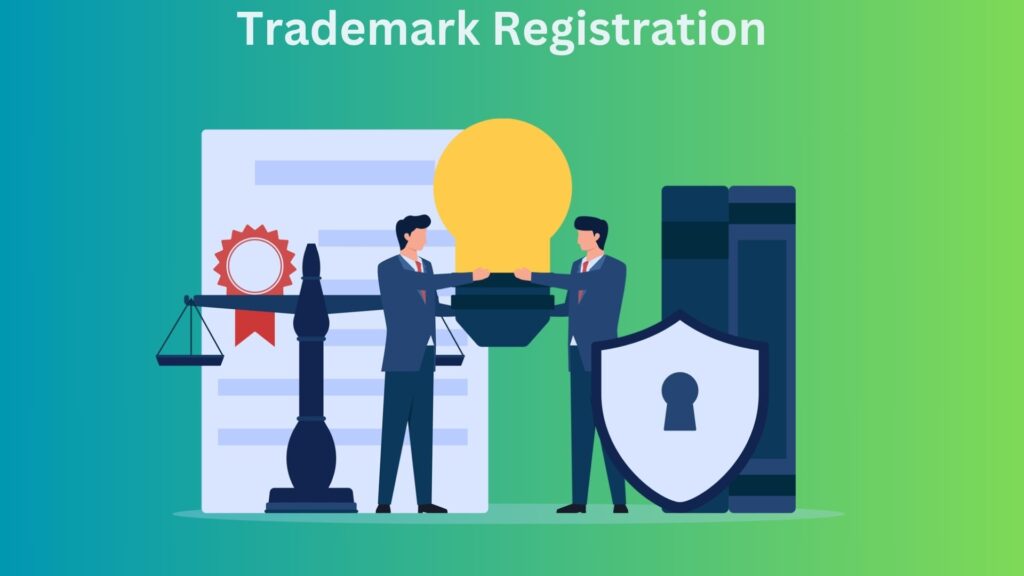In today’s fiercely competitive marketplace, your brand is more than just a logo or name; it’s the core of your business identity, your reputation, and the promise you make to your customers. Building a strong brand takes time, effort, and investment. But without proper legal protection, this valuable asset is vulnerable. Trademarking your brand is the crucial step to safeguard your unique identity, establish legal ownership, and unlock a wealth of business advantages. This comprehensive guide explores the essential aspects of trademarking your brand, including registration, undeniable benefits, and the significant problems you face by neglecting this vital protection.
1. What is Trademarking Your Brand? Establishing Legal Ownership and Brand Distinction
Trademarking your brand is the legal process of securing exclusive rights to use your brand’s distinctive elements – such as your brand name, logo, slogan, or even a unique sound – in connection with your goods or services. It’s about establishing legal ownership of your brand identity, ensuring that no other entity can use confusingly similar marks in the same or related industry. Trademarking is not merely a formality; it’s a strategic business imperative that provides exclusive rights and sets your brand apart in a crowded marketplace, fostering consumer recognition and trust. It’s the cornerstone of protecting your brand’s unique identity and preventing brand dilution or imitation.
2. Trademark Registration: A Simplified Path to Brand Protection
While the detailed trademark registration process can involve legal expertise, the core steps are generally straightforward:
- Trademark Search: Conduct a thorough trademark search to ensure your desired brand name or logo is not already registered or similar to existing trademarks in your industry. This is a critical step to avoid potential conflicts and rejection of your application.
- Application Filing: File a trademark application with the relevant trademark registry (e.g., the Indian Trademark Registry). This application includes details about your brand, the goods or services it represents (classified under specific trademark classes), and your applicant information.
- Examination and Review: The trademark registry examines your application for technical correctness and to ensure it meets all legal requirements. They will also conduct their own search for conflicting trademarks.
- Publication in Trademark Journal: If the application is accepted after examination, it is published in the Trademark Journal, allowing the public to oppose the registration if they have valid reasons (usually within 4 months of publication).
- Registration Certificate: If no opposition is filed or if opposition is resolved in your favor, the trademark registry issues a registration certificate, granting you exclusive rights to your trademark for a specified period (typically 10 years, renewable thereafter).
- While you can navigate this process yourself, engaging a trademark attorney or agent can significantly streamline the process, increase the chances of successful registration, and ensure all legal nuances are addressed effectively.
3. Unlock a Fortress of Benefits: The Undeniable Advantages of Trademark Registration
Trademark registration unlocks a wealth of tangible and intangible benefits that are crucial for long-term brand building and business success:
- Exclusive Legal Rights: Trademark registration grants you exclusive legal rights to use your trademark for your goods/services nationwide. This means you have the legal power to prevent others from using identical or deceptively similar marks in your industry.
- Brand Protection Against Infringement: You gain legal recourse to take action against infringers who attempt to copy or misuse your trademark, protecting your brand reputation and market share. This can involve sending cease and desist letters, initiating legal proceedings, and claiming damages.
- Enhanced Brand Value and Reputation: A registered trademark enhances your brand’s perceived value and credibility. It signals professionalism, trustworthiness, and long-term commitment to your brand, building stronger customer loyalty and attracting investors.
- Asset Creation and Business Valuation: Your registered trademark becomes a valuable intellectual property asset that can be licensed, franchised, or even sold. It significantly contributes to your company’s overall valuation, attracting potential buyers or investors.
- Competitive Advantage & Market Differentiation: In a saturated marketplace, a registered trademark helps your brand stand out, creating a unique identity that resonates with customers and fosters brand recall, giving you a distinct competitive edge.
- Global Brand Expansion Potential: A registered trademark in your home country can often facilitate easier trademark registration in international markets, paving the way for seamless global expansion and brand consistency.
- Building Customer Trust and Recognition: The ® symbol associated with a registered trademark instantly assures customers of your brand’s authenticity and quality, fostering increased trust and brand recognition in the marketplace.
4. The Perils of Neglect: Problems and Risks Arising From Not Trademarking Your Brand
Failing to trademark your brand exposes your business to significant risks and potential problems that can severely impact your growth and long-term sustainability:
- Brand Infringement and Copying: Without a registered trademark, your brand is vulnerable to copycats. Competitors can legally use similar brand names or logos, causing customer confusion, diluting your brand identity, and potentially stealing your market share.
- Loss of Brand Identity and Market Confusion: If others use similar marks, it creates market confusion, making it difficult for customers to distinguish your brand and potentially damaging your brand reputation. Consumers may unknowingly purchase competitor products or services, thinking they are yours.
- Legal Battles and Lawsuits (as Defendant): If you unknowingly use a brand name or logo that’s already trademarked by someone else, you could face costly legal battles and infringement lawsuits, potentially forcing you to rebrand entirely and incur significant financial losses.
- Hindered Business Growth and Expansion: Lack of trademark protection can limit your ability to expand into new markets or attract investors, as investors often prioritize brands with secured intellectual property rights.
- Difficulty in Selling or Franchising Your Business: Without a registered trademark, your brand lacks a clear legal asset, making it considerably harder to sell, franchise, or license your business concept and IP, thereby limiting your business expansion potential and exit strategies.
- Lost Brand Value and Investment: All the time, money, and effort invested in building your brand can be jeopardized if it’s not legally protected. Without a trademark, your brand lacks legal security, leaving your hard-earned brand value at risk and potentially forcing you to restart branding efforts.
Trademarking your brand is not just a legal formality; it’s a strategic investment and a cornerstone of long-term business success. It provides essential legal protection, unlocks invaluable business benefits, and mitigates significant risks. In today’s competitive landscape, securing your brand’s future through trademark registration is no longer optional – it’s an absolute necessity. Take proactive steps to trademark your brand today and build a robust, legally protected, and thriving business for tomorrow. Protect your brand, protect your future.




When I originally commented I clicked the “Notify me when new comments are added” checkbox and now each time a comment is added I get several e-mails with the same comment. Is there any way you can remove people from that service? Cheers!
I do agree with all of the ideas you’ve presented in your post. They are really convincing and will definitely work. Still, the posts are too short for starters. Could you please extend them a bit from next time? Thanks for the post.
Having read this I thought it was very informative. I appreciate you taking the time and effort to put this article together. I once again find myself spending way to much time both reading and commenting. But so what, it was still worth it!
This is gold! Bookmarking this for sure.
Hello.This article was really fascinating, especially since I was investigating for thoughts on this matter last Saturday.
Write more, thats all I have to say. Literally, it seems as though you relied on the video to make your point. You definitely know what youre talking about, why waste your intelligence on just posting videos to your site when you could be giving us something enlightening to read?
When I originally commented I clicked the -Notify me when new comments are added- checkbox and now each time a comment is added I get four emails with the same comment. Is there any way you can remove me from that service? Thanks!
My brother recommended I might like this blog. He was totally right. This post truly made my day. You can not imagine just how much time I had spent for this information! Thanks!
We’re a group of volunteers and starting a new scheme in our community. Your web site provided us with valuable information to work on. You’ve done a formidable job and our whole community will be thankful to you.